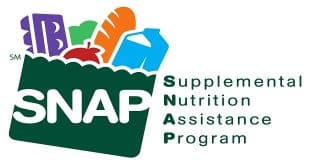Washington, D.C. – U.S. Senator Joe Donnelly helped pass bipartisan legislation today in the Senate Agriculture Committee that would reauthorize programs to provide nutritious meals and snacks to food insecure children – children who sometimes do not know where their next meal will come from – and offer more flexibility to schools. The Improving Child Nutrition Integrity and Access Act would expand summer meal options for states and would uphold important nutrition standards for school snacks and meals while offering added flexibility to schools that need it. The bill passed the committee unanimously and will now move on to consideration by the full Senate.
Donnelly said in a statement submitted for the record, “I believe that our country has no greater asset than the next generation of young people—smart, talented kids who will inherit our country, and I believe will make it stronger. In order to help our children reach their full potential, we have an obligation to provide them with every opportunity to succeed both inside and outside the classroom. Yet for too many American children, this incredible potential is limited by food insecurity. That is why keeping Hoosier children healthy and fed is an important priority for me. I am glad to see three particular provisions in this legislation that will work for Hoosier families.”
The Summer Food Service Program, which would be reauthorized under the Improving Child Nutrition Integrity and Access Act, includes changes that Donnelly helped introduce in August 2015 that would make federal child nutrition programs more efficient and flexible in order to better reach food insecure children during the summer months when schools meals are unavailable. The Improving Child Nutrition Integrity and Access Act also would reauthorize the following programs: National School Lunch Program (NSLP), School Breakfast Program (SBP), Child and Adult Care Food Program (CACFP), Special Milk Program (SMP), and Fresh Fruit and Vegetable Program (FFVP), as well as the Special Supplemental Nutrition Program for Women, Infants, and Children (WIC). These provisions would support providing nutritious meals and snacks to children in school and in childcare settings, increase flexibility of what products to serve, and extend participation to children for an additional year under certain circumstances.
Text of Senator Donnelly’s full remarks submitted for the record are below and can be downloaded here.
I want to thank Chairman Roberts and Ranking Member Stabenow for their leadership on this important issue. This committee continues to work in a bipartisan and productive manner on important issues like reducing childhood hunger and improving nutrition.
I believe that our country has no greater asset than the next generation of young people—smart, talented kids who will inherit our country, and I believe will make it stronger. In order to help our children reach their full potential, we have an obligation to provide them with every opportunity to succeed both inside and outside the classroom. Yet for too many American children, this incredible potential is limited by food insecurity. That is why keeping Hoosier children healthy and fed is an important priority for me. I am glad to see three particular provisions in this legislation that will work for Hoosier families.
Statewide, about 50 percent of Hoosier students qualify for free- or reduced-price lunches, but of these kids, only about 18 percent are getting summer meals. I met and played basketball with some of the students participating in the summer meals program at home in Indiana. The improvements to the program in this bill will make it easier to feed these children, and others like them, by creating new ways to get food to those who need it the most. Areas with large numbers of students who can’t make it to summer meals sites will have increased flexibility to deliver or send meals home with students. Other areas that choose to do so can implement options to support meals at home.
Secondly, this bill will allow schools in Indiana to continue to work toward achieving important nutrition standards, but will be able to do so with a little more flexibility if that’s what they need. This legislation will allow lunchrooms to serve whole grain-rich items four days per week with extra options on the fifth day. School lunches will continue to reduce salt content, but lunchrooms will have some extra time to find the right foods for their students in meeting this requirement. I’m glad we could come together to find a balance between healthy and delicious lunches for Hoosier students.
Finally, more schools in Indiana will be able to serve healthy snacks to students throughout the day with this bill’s improvements to the fruits and vegetables snack program. Schools in need who have wanted to participate in this program, but haven’t had the resources needed previously, can now enter the fruits and vegetables snack program and provide all forms of snacks, while getting the assistance they need to permanently participate in the program.
I am proud of the important work on legislation done by this committee and look forward to continue working together to get this bill enacted into law.






